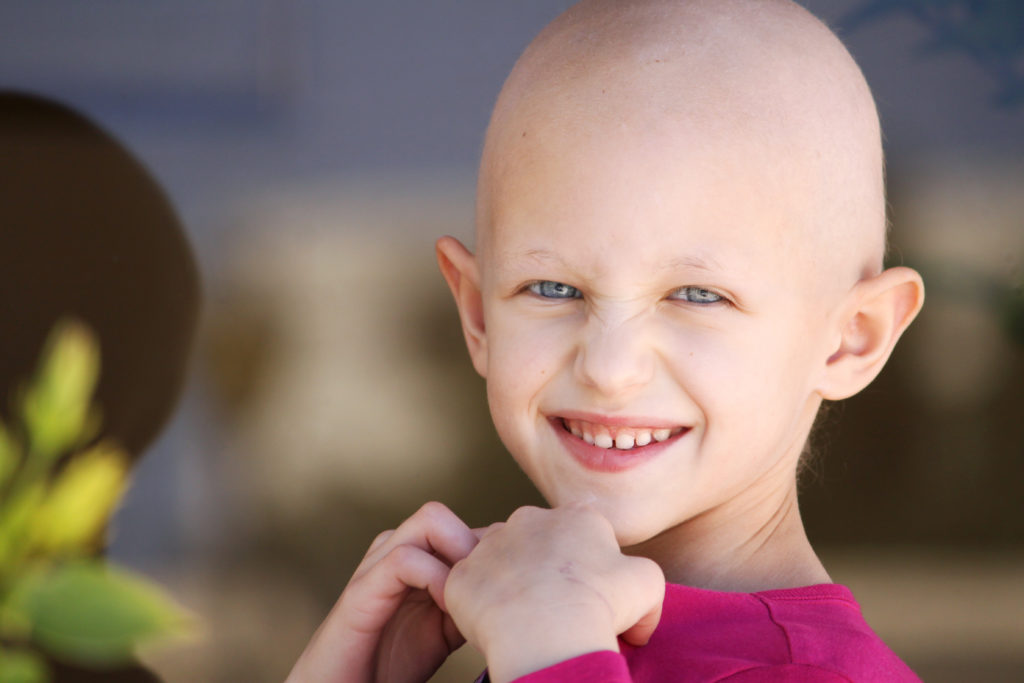Clinical Trials for Blood Cancers: Advancing Options for Children and Young Adults
Clinical Trials for Blood Cancers: Advancing Options for Children and Young Adults https://pediatricsnationwide.org/wp-content/uploads/2020/06/AdobeStock_57532575-1024x683.jpg 1024 683 Abbie Miller Abbie Miller https://pediatricsnationwide.org/wp-content/uploads/2023/05/051023BT016-Abbie-Crop.jpg- June 03, 2020
- Abbie Miller

Most cancer treatments are first discovered, developed and approved for adult patients. But translating those therapies to pediatric and young adult patients with cancers can be more of a winding path than a superhighway.
At Nationwide Children’s Hospital, the Division of Hematology, Oncology and Blood and Marrow Transplant is dedicated to participating in and supporting clinical trials to bring new therapeutic options to pediatric, adolescent, and young adult (AYA) patients.
While overall survival rates for blood cancers have improved greatly in recent years, there remains a small yet crucial segment of patients for whom a durable remission is difficult to achieve. These clinical trials aim to identify new and effective therapies for these patients.
Acute Lymphoblastic Leukemia or Lymphoblastic Lymphoma
In an open label, multicenter phase 2 study, researchers are investigating the efficacy and safety of daratumumab, a targeted immunotherapy that attacks cells which overexpress CD38, in patients with relapsed or refractory precursor B- or T-cell acute lymphoblastic leukemia (ALL) or lymphoblastic lymphoma (LL).
“Our primary question is to determine the percentage of patients with complete response for B- and T-cell ALL/LL,” says Susan Colace, MD, pediatric oncologist at Nationwide Children’s, one of the participating sites for the study. “Targeting CD38 provides a novel treatment approach for both B-cell and T-cell ALL/LL in settings in which treatment resistance to the standard chemotherapies is seen. Daratumumab has been successfully used with other targeted agents or standard chemotherapy with minimal additional toxicity in multiple myeloma studies. Thus, daratumumab has the potential to provide therapeutic benefit for patients with relapsed/refractory B-cell or T-cell ALL/LL.”
“We are currently enrolling only patients with T-cell ALL/LL,” says Dr. Colace. “To qualify for the trial, they must be aged 1-30 years, in first relapse or refractory to one prior induction/consolidation regimen with 5% blasts in the bone marrow (for ALL) or measurable radiologic disease (LL).”
For more information about other enrolling sites, as well as full inclusion/exclusion criteria, visit ClinicalTrials.gov, Identifier: NCT03384654
Mature B-cell Leukemia and Non-Hodgkin Lymphoma
In a multisite study, researchers are examining the safety and efficacy of ibrutinib in combination with multiagent chemotherapy in pediatric patients with relapsed/refractory mature B-cell leukemia and non-Hodgkin lymphoma (NHL).
Ibrutinib is a small molecule drug currently approved for use in adults to treat B-cell cancers such as mantle cell lymphoma, chronic lymphocytic leukemia and others. The drug binds to Bruton’s tyrosine kinase permanently.
“In this study, one of our primary questions is to assess the efficacy for event-free survival using ibrutinib in combination with rituximab, ifosfamide, carboplatin and etoposide (RICE) or rituximab, vincristine, ifosfamide, carboplatin and idarubicin (RVICI) background therapies compared to those therapies alone,” says Dr. Colace.
“Long-term survival for patients with relapsed or refractory BL and DLBCL is poor, with only 10% to 20% of these patients surviving beyond 2 years, underscoring the unmet medical need in this patient population. The addition of ibrutinib to a salvage regimen like RICE/RVICI may provide some advantages for the pediatric population given its unique mechanism of action and toxicity profile. Although there is no clinical pediatric experience with ibrutinib, translational models demonstrate activity of ibrutinib in BL and DLBCL. Clinical data also demonstrate the safety and activity of ibrutinib in adult subjects with relapsed DLBCL.”
Eligible patients must be between 1-30 years old, with disease initially occurring prior to age 18. They must be in their first occurrence of relapsed/refractory BL, Burkitt-like lymphoma, Burkitt leukemia, DLBCL, DLBCL not otherwise specified, or other pediatric mature B-cell NHL. They must have measurable disease in bone marrow, on radiologic studies, or in CSF.
The study is currently enrolling on part 2, which randomizes subjects to receive ibrutinib + RICE/RVICI or RICE/RVICI alone to evaluate efficacy. Results from part 1, which evaluated pharmacokinetics and safety along with preliminary efficacy, were published in Leukemia in February 2020.
To learn more about the study at Nationwide Children’s, go here.
For more information about other enrolling sites, as well as full inclusion/exclusion criteria, visit ClinicalTrials.gov, Identifier: NCT02703272
Image credit: Adobe Stock
About the author
Abbie (Roth) Miller, MWC, is a passionate communicator of science. As the manager, medical and science content, at Nationwide Children’s Hospital, she shares stories about innovative research and discovery with audiences ranging from parents to preeminent researchers and leaders. Before coming to Nationwide Children’s, Abbie used her communication skills to engage audiences with a wide variety of science topics. She is a Medical Writer Certified®, credentialed by the American Medical Writers Association.
-
Abbie Millerhttps://pediatricsnationwide.org/author/abbie-miller/
-
Abbie Millerhttps://pediatricsnationwide.org/author/abbie-miller/
-
Abbie Millerhttps://pediatricsnationwide.org/author/abbie-miller/
-
Abbie Millerhttps://pediatricsnationwide.org/author/abbie-miller/
- Post Tags:
- Hematology/Oncology/BMT
- Research
- Posted In:
- Features







